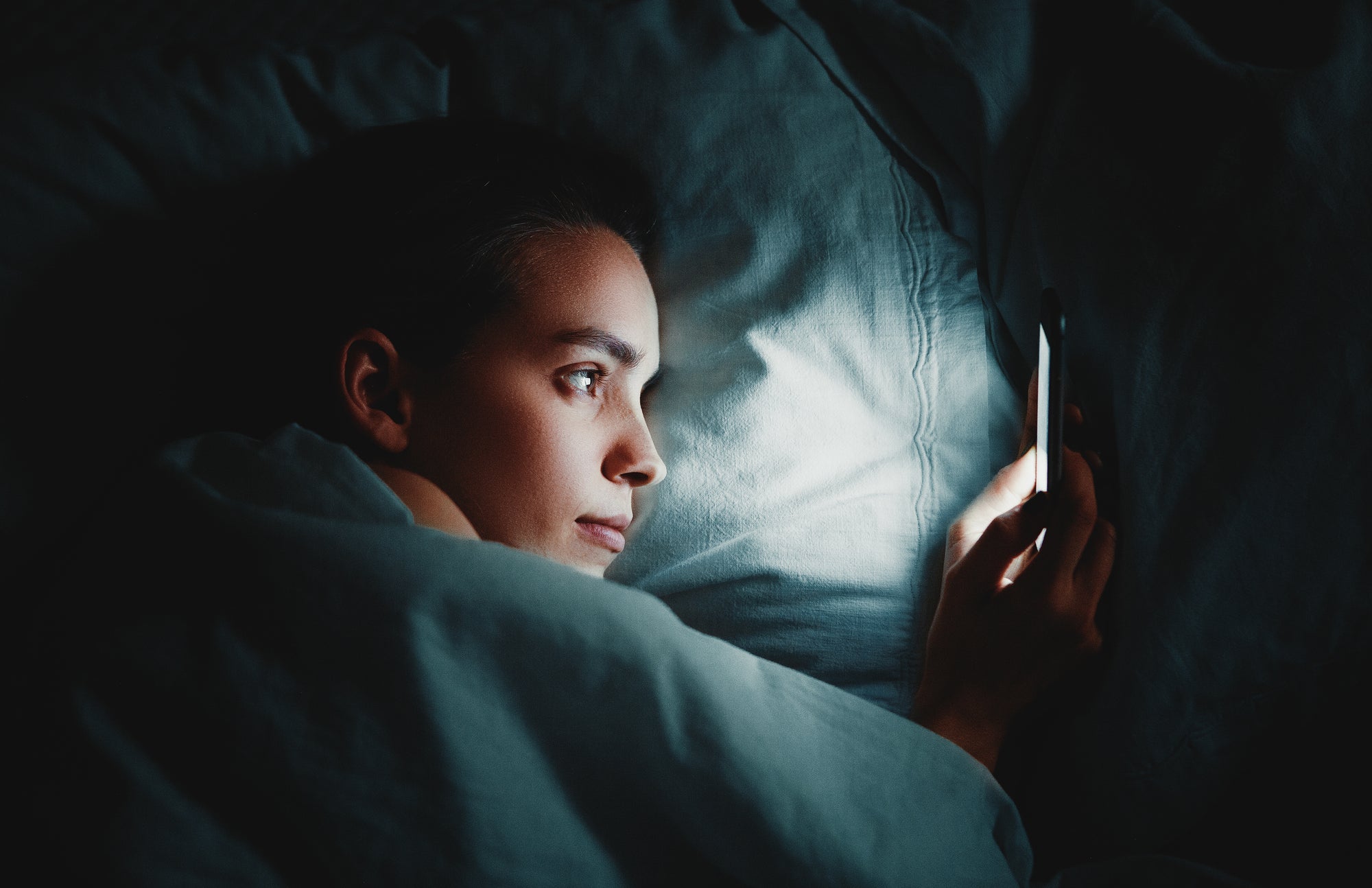

Blue Light Exposure: Is it Helpful or Harmful for Your Skin Health?
Blue light is one of the seven colors that compose the visible light spectrum. It is emitted by sunlight, but also through our everyday electronic devices like smartphones and computer screens.
While we typically hear about blue light in relation to our electronics, most of the blue light people are exposed to in their daily lives comes from the sun. In fact, experts say that blue light exposure from screens is far less than the amount given off by the sun.
The problem is that people are spending an increasing amount of time working, communicating, watching, and playing on their devices - keeping them close to their face and skin for sometimes hours on end. This close, prolonged exposure to blue light can have consequences for your eyesight, sleep patterns, and even your skin!
Negative Effects of Blue Light on Skin Health
The investigation on the effects of blue light is still ongoing, however preliminary studies have found that exposure to blue light from devices (even exposures as brief as 60 minutes) can lead to changes in skin cells, such as cell shrinkage and death. Changes like these can speed up your skin’s natural aging process.
Studies have also connected blue light exposure to skin issues such as pigmentation, redness, swelling, and premature wrinkling.
One study published in Oxidative Medicine and Cellular Longevity even found a link between blue light exposure and free radical production in the skin, which is a primary cause of premature skin aging.
Positive Effects of Blue Light on Skin Health
Despite the potential negative effects of exposure from devices, blue light can also be beneficial in helping some skin conditions when used properly as a treatment. Blue light and LED light therapies have been used to treat mild to moderate acne. One study found that blue light therapy lowered the total count of whiteheads, blackheads, and other acne types after only a week
Another study used blue light therapy to treat flare up-patches in individuals with mild to moderate plaque psoriasis and found that this helped to reduce the patch’s size and redness over a four week period.
When it comes to the overall impacts of blue light on our health, much still to be investigated. But, if you’re looking to protect your skin from potential damage, try investing in a blue light-reducing screen protector for your smartphone, using sunscreens with zinc oxide or titanium dioxide (which help to block blue light), or simply cutting down on your daily screen time.
Hydrate Your Skin from the Inside Out - Try Lilium Today!
Sources:
Blue Light Exposed: What is Blue Light? | Everyday Health: Is Blue Light Harming Your Skin Health? | WebMD: Exposing Effects of Blue Light on Skin | Cleveland Clinic Health Essentials: Blue Light Therapy for the Skin - What Can it Do?
